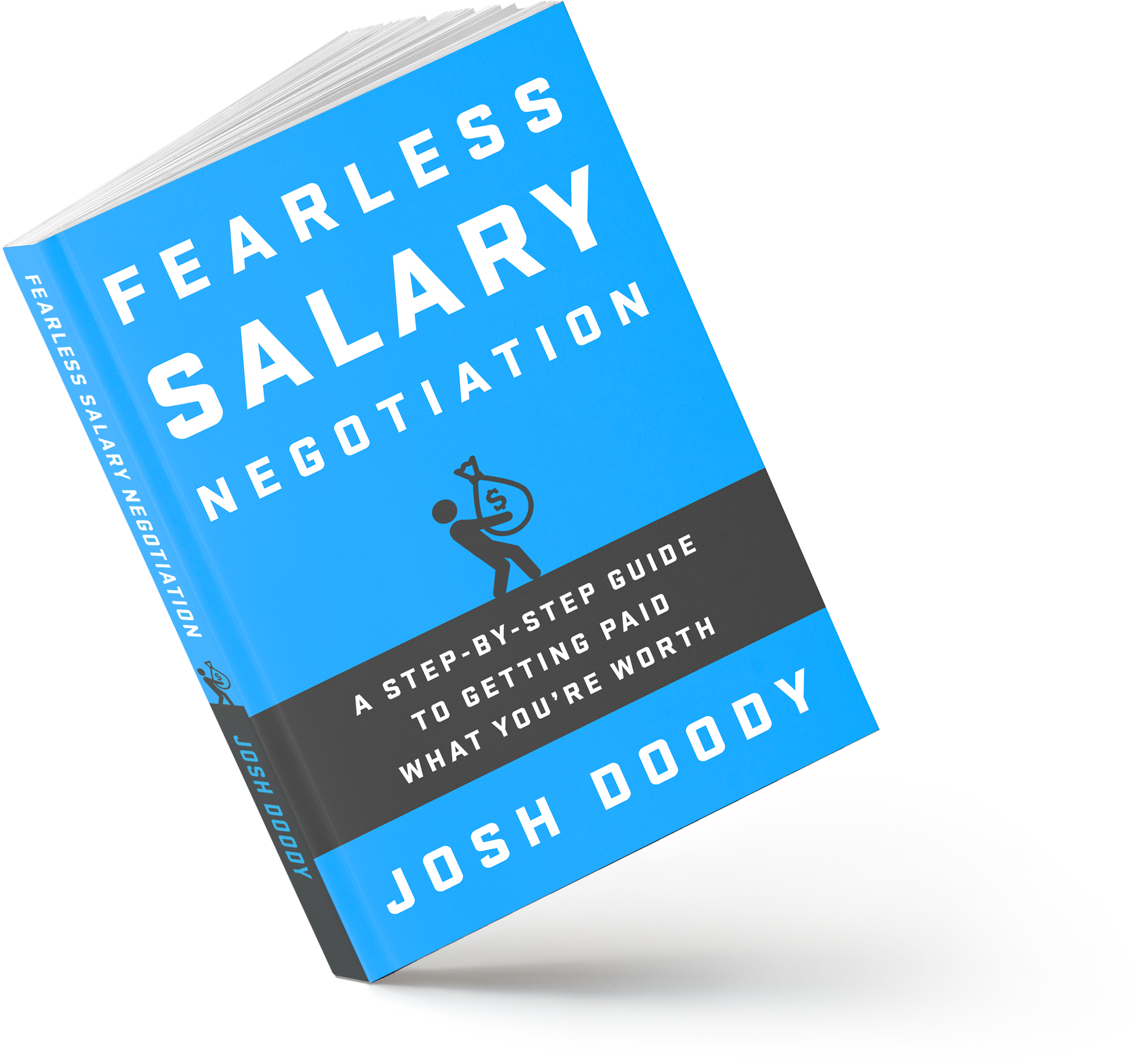
An example showing how to deliver your counter offer in an email
A counter offer email example with detailed explanation
It's best to deliver your counter offer in an email. Here is a counter offer email example with detailed explanation.

It's best to deliver your counter offer in an email. Here is a counter offer email example with detailed explanation.
When you deliver your counter, you have another opportunity to make your case for the maximum possible salary. And, more importantly, you can help the recruiter or hiring manager make a strong case to whoever is holding the purse strings. Your counter will probably require approval by someone higher up the chain of command, so you should give them everything they need to make the strongest case possible for you. Most of the time, if you’re this far in the process, they want to make things work, so this is the perfect time to make your case again.
We’ll approach this section as though you’re going to email your counter because the best way to make your strongest case and make it easy for the recruiter or hiring manager to share that case with the final approver is to make it in writing.
If you absolutely can’t give your counter via email, you should still write the email so that you can use it for reference when you verbally deliver your counter.
So how do you make your case to justify your counter? You already did when you answered the question “Why are you the best candidate for this position?” You’ve probably already made it once—verbally to the recruiter—and you’re going to make it one more time, in writing.
Here’s a real example of a counter email I sent for a job I landed. I’ve changed some details (names, numbers), but this is almost exactly what I sent. I’ve tried to scale the numbers so that the proportions are about the same as the real numbers.
To: Brittany Jones <[email protected]> [recruiter]
CC: Katherine Thompson <[email protected]> [recruiter’s manager]
Subject: Josh Doody - My thoughts on Tom’s verbal offer
Hi Brittany
I hope you had a great weekend!
I've been considering Tom’s offer over the weekend and everything sounds good, although I would like to discuss the base salary component.
I think I'm a particularly good match for this position, where I would add significant value to ACME Corp. and to Tom’s Practice from Day One. I have a strong technical background and have built and managed teams of technical people. I am exceptionally good with clients, and have taught short courses on building rapport with and managing clients. I have an MBA and have successfully managed many portfolios of business in the Widget Making industry over the past seven years. I've been working with [Partner Company] for over two and a half years, and have experience with many of their partnership managers and leadership team. I have a strong technical writing background and can both create and delegate the creation of good collateral quickly and efficiently.
All of these qualities contribute directly to the core components of this particular position, and that's why I'm excited for the opportunity to work with Tom and his Practice in this capacity at ACME Corp.
Tom offered $50,000 and I would be more comfortable if we could settle on $56,000. I feel that amount reflects the importance and expectations of the position for ACME Corp’s business, and my qualifications and experience as they relate to this particular position.
Thanks for your time, and I look forward to talking with you on Monday morning at 10:30 ET!
All the best
Josh Doody
[email protected]
Let’s look a little closer.
I open with a greeting (I’m emailing the recruiter I’ve been working with throughout the hiring process), then immediately cut to the chase because I want this to show up in the email preview pane if possible: I’m pretty happy with the offer, but I want to talk about the base salary component. Then I immediately jump into making my case, which I initially put together during the preparation phase of this process and delivered verbally in my post-interview follow-up call with the recruiter.
Next, I summarize the verbal offer the hiring manager made, and state my preferred counter in a neutral way. I make one more one-sentence case for myself, confirm when I’ll have my next phone call with the recruiter, politely signoff, and include my signature.
Notice that my counter is 12% above their initial offer, implying that my aggression factor was only a 2. In this case, I rated “How badly do they need me?” at about an 8, but I rated “How badly do I need this job?” at about a 6 because I was anxious to make a change.
I recommend that you compose an email like the one above, then send it to a couple friends or family members for review. They’ll probably find some typos and might suggest some ways you can tighten it up or make it better. You can always redact the actual numbers if you’re not comfortable sharing them.
Once you’re happy with your counter and you feel you’ve made a strong case to justify it, send it to the recruiter.
So now you’ve made a counter and extended the negotiating window up from their offer to your counter. The recruiter will almost certainly say, “Okay, I’ll need to go talk to Finance about this and see what we can do.” In that case, you can jump to preparing for the final discussion. They may also say, “Okay, we can do that!” and you’re done (and congrats, by the way!).
Occasionally, they’ll say, “Oh no, we can’t do that. The best we can do is [some number].” They’ve just bumped you straight to the final discussion. Fortunately, you read this before you started negotiating, so you already have your plan for the final discussion. But for now, we’ll treat it like a separate part of the process.

I'm Josh Doody, a professional salary negotiation coach who helps High Earners negotiate their job offers. On average, High Earners improve their first-year compensation by $48,492 with my help.
Apply for a free 15-minute intro call to learn how I can help.